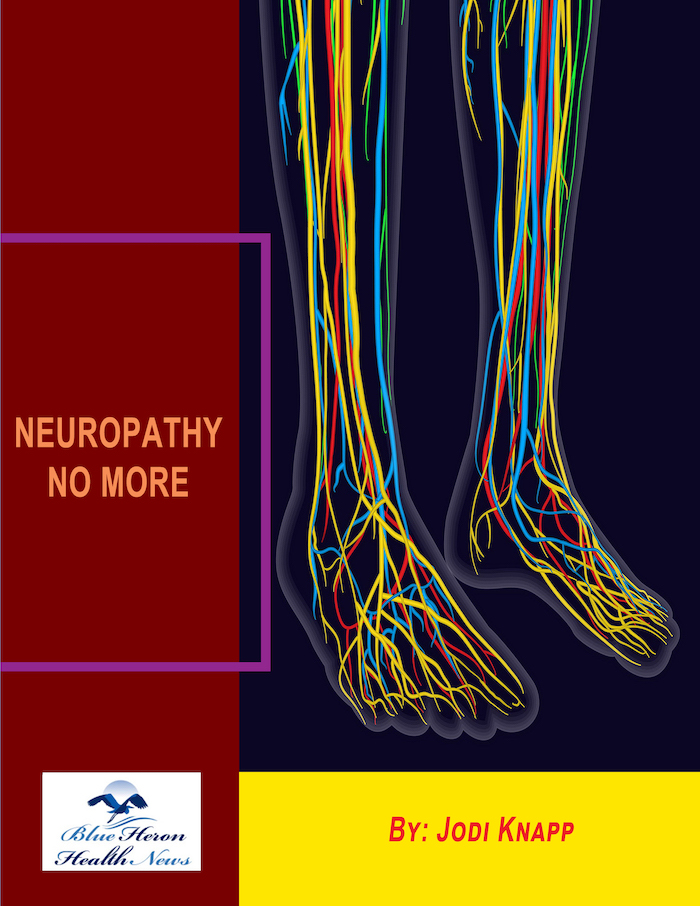
Neuropathy No More neuropathy No More By JODI KNAPP neuropathy is one of the most painful diseases which can make people suffer a lot. Even though medical science has progressed a lot, it could not really found a solution for this condition. This is because the condition is deep routed. You have to make sure that you are changing some of the lifestyle patterns to get relief from the symptoms. The Neuropathy No More is exactly what you need for that. This program is quite helpful and can provide you with all the important information that you will need to ensure better life without the symptoms.
How does neuropathy affect the body?
Neuropathy affects the body by disrupting the normal functioning of nerves, leading to a wide range of symptoms depending on which type of nerves are damaged and where the damage occurs. Nerves in the body are responsible for transmitting signals between the brain, spinal cord, and various parts of the body, so when they are damaged, these signals can be altered or blocked.
Types of Nerves Affected by Neuropathy:
- Sensory Nerves: Carry sensory information (e.g., pain, temperature, touch) to the brain.
- Motor Nerves: Control muscle movements by sending signals from the brain and spinal cord to the muscles.
- Autonomic Nerves: Regulate involuntary bodily functions, such as heart rate, blood pressure, digestion, and bladder control.
Depending on which nerves are affected, neuropathy can cause a variety of symptoms and effects on the body.
Effects of Neuropathy on the Body:
- Sensory Neuropathy:
- Numbness and Tingling: Damage to sensory nerves can cause numbness or a “pins and needles” sensation, typically in the hands, feet, or legs. This may affect a person’s ability to feel touch, temperature, or pain.
- Pain: Neuropathy can cause burning, stabbing, or shooting pain, particularly in the limbs. This pain can be constant or intermittent and may worsen at night.
- Loss of Sensation: Sensory nerve damage can lead to a loss of sensation, making it difficult to detect injuries, burns, or infections, which can lead to further complications, especially in the feet (common in diabetic neuropathy).
- Balance and Coordination Issues: Loss of sensation in the feet or legs can impair balance and coordination, increasing the risk of falls.
- Motor Neuropathy:
- Muscle Weakness: Damage to motor nerves can cause muscle weakness, particularly in the arms, legs, or hands. This may make tasks like walking, grasping objects, or lifting difficult.
- Muscle Atrophy: Over time, muscles may shrink or atrophy due to lack of use if nerve damage prevents normal muscle contraction.
- Cramps and Spasms: Neuropathy can cause painful muscle cramps, spasms, or twitching.
- Paralysis: Severe motor neuropathy can lead to partial or complete paralysis of the affected muscles, particularly in more advanced cases.
- Autonomic Neuropathy:
- Cardiovascular Issues: Damage to autonomic nerves can disrupt heart rate and blood pressure regulation, leading to dizziness, fainting, or lightheadedness when standing (orthostatic hypotension).
- Digestive Problems: Autonomic neuropathy can interfere with digestion, causing symptoms such as nausea, vomiting, constipation, diarrhea, or bloating. In some cases, it can lead to gastroparesis, a condition where the stomach empties too slowly.
- Bladder and Bowel Dysfunction: Damage to the nerves controlling the bladder and bowels can result in urinary incontinence, difficulty emptying the bladder, or constipation.
- Sweating Abnormalities: Autonomic neuropathy can lead to excessive sweating (hyperhidrosis) or reduced ability to sweat (anhidrosis), which affects temperature regulation.
- Sexual Dysfunction: Men may experience erectile dysfunction, while women may have difficulties with arousal and lubrication due to nerve damage affecting the reproductive system.
- Overall Impact:
- Impaired Quality of Life: Neuropathy can significantly affect a person’s quality of life, making it difficult to perform everyday activities, work, or maintain independence, especially when pain, muscle weakness, or sensory loss is severe.
- Increased Risk of Injury: Loss of sensation increases the risk of unnoticed injuries, burns, or infections, particularly in individuals with diabetic neuropathy. Without proper care, these injuries can lead to severe complications, such as ulcers or even amputations in extreme cases.
- Emotional and Mental Health Effects: Chronic pain, disability, and the impact of neuropathy on daily life can contribute to anxiety, depression, and social isolation.
Conclusion:
Neuropathy affects the body by disrupting the normal function of sensory, motor, or autonomic nerves, leading to a wide range of symptoms. These can include pain, numbness, muscle weakness, and difficulties with involuntary bodily functions such as heart rate, digestion, and bladder control. The effects of neuropathy vary depending on the type and severity of the nerve damage, and they can significantly impair a person’s ability to perform daily activities and maintain their quality of life. Proper diagnosis and management are essential to reduce symptoms and prevent further complications.
Neuropathy No More neuropathy No More By JODI KNAPP neuropathy is one of the most painful diseases which can make people suffer a lot. Even though medical science has progressed a lot, it could not really found a solution for this condition. This is because the condition is deep routed. You have to make sure that you are changing some of the lifestyle patterns to get relief from the symptoms. The Neuropathy No More is exactly what you need for that. This program is quite helpful and can provide you with all the important information that you will need to ensure better life without the symptoms.